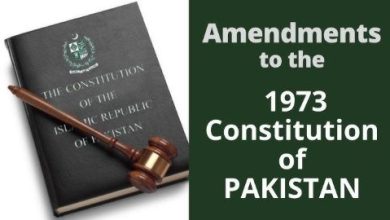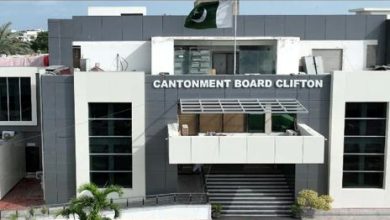Gas Meter Ban in Sindh: A New Energy Crisis

The gas meter ban in Sindh reflects a deeper crisis in Pakistan’s energy management
Sawera Nadeem
In recent years, Pakistan has been wrestling with severe energy challenges, but the province of Sindh now faces an even more pressing issue — a complete halt on new gas meter installations. The decision, primarily executed by Sui Southern Gas Company (SSGC), has triggered widespread inconvenience, public outrage, and uncertainty among citizens and businesses alike. From families building new homes to students in hostels, small businesses, and real estate developers — the ban is biting hard. While the government defends its move as a necessity driven by dwindling resources, the people of Sindh are left navigating daily life without one of the most basic utilities.
Why Was the Ban Imposed?
The gas meter ban emerged as part of a broader conservation policy introduced in 2023. According to officials, Pakistan’s natural gas reserves are rapidly depleting, and the infrastructure cannot support further expansion in domestic connections. The energy ministry claims that gas demand has far exceeded supply, particularly during the winter months when residential usage spikes. To preserve pressure in existing pipelines and prioritize current consumers, new connections were halted indefinitely.
The Role of SSGC and the Petroleum Division
Sui Southern Gas Company (SSGC), responsible for gas distribution in Sindh and Balochistan, has been at the forefront of implementing this policy. Backed by directives from the Petroleum Division, SSGC froze all new meter applications, even for families who had completed all formalities. While the company cites technical and supply constraints, the lack of a clear timeline or alternative strategy has exacerbated public dissatisfaction.
Who Is Affected and How? Impact on New Homeowners
Families moving into new houses are among the worst affected. Many spent their life savings constructing homes, only to realize that gas connections would not be available. In areas like Gulshan-e-Iqbal, Scheme 33, and Malir in Karachi, several newly built homes remain unoccupied due to the absence of legal gas access. Homeowners are forced to rely on costly and potentially dangerous alternatives like LPG cylinders or electric cookers.
Struggles of Tenants and Students
Renters and students face unique struggles. Hostels and shared apartments often depend on individual meters to function efficiently. Without gas, tenants must cook with low-powered electric stoves, endure cold showers in winter, or buy meals daily — a significant financial burden on students and low-income individuals. In hostels near the University of Karachi, residents complain of frequent power cuts that compound the issue.
 Voices from entire Sindh
Voices from entire Sindh
In cities like Sukkur, Khairpur, and Nawabshah, the situation is even graver. Residents of newly developed housing schemes in these areas say they were promised gas connections, which are now indefinitely suspended. With little access to reliable alternatives, people are resorting to firewood or charcoal, reversing years of progress in energy access and increasing health risks due to indoor air pollution.
Case Studies
Karachi Family’s Fight for Basic Utilities
Rashid Ahmed, a middle-class resident of Karachi, recently completed construction on a modest 3-bedroom home in North Karachi. However, after months of waiting, he was told his application for a gas meter would not be processed due to the ban.
“We’re spending almost Rs.8000 every month on LPG cylinders. That’s more than what we expected for all utilities combined,” Rashid says. “Our kitchen is small, and storing cylinders is unsafe. But we have no choice.”
Builders Left in the Lurch
Builders and real estate developers have also sounded the alarm. Imran Siddiqui, a developer in Hyderabad, claims that three of his apartment projects have been delayed due to buyer hesitation.
“Clients don’t want to move into flats without a basic gas connection. Sales have dropped drastically. We’ve already paid advance fees to SSGC for some connections — that money is now frozen,” he said.
Hostels Running Without Gas
A girls’ hostel in Gulistan-e-Johar houses nearly 50 students from interior Sindh. Hostel warden Samina Baloch shared that without gas, even heating water becomes a luxury.
“Some of our girls get late for university because they have to wait their turn to use one small electric kettle for showers,” she says. “We weren’t prepared for this. Our backup system can’t handle full capacity.”
Domestic Workers and Home-Based Businesses Hit Hard
For Saima Bibi, a domestic worker and home cook, the ban has cost her more than comfort — it’s affected her income.
“I used to cook meals for two families daily. Now I can’t manage cooking multiple dishes using just one electric stove. I’ve lost one client already,” she explains. Women running home-based catering businesses are seeing reduced orders and increased operational costs.
Economic Consequences
Real Estate Slowdown
The real estate sector in Sindh has experienced a noticeable slowdown. New projects are facing reduced buyer interest due to uncertainty around utilities. Builders fear that the freeze on gas connections may extend further, discouraging investment in housing.
Small Businesses and Eateries at Risk
Small-scale eateries, chai dhabas, and tandoors depend heavily on gas. In areas like Saddar, Korangi, and Hyderabad’s Auto Bhan Road, dozens of businesses have switched to LPG, but at a high cost. Their margins have shrunk, and many fear closure if the situation continues.
Rise in Unofficial Connections and Safety Hazards
The ban has inadvertently created a black market for gas. In some neighborhoods, illegal connections are being offered for as much as Rs. 70,000. These connections are often unsafe, lack regulation, and pose a fire hazard. SSGC has issued warnings but lacks the manpower to inspect every area.
Public Reaction and Civil Society Response
Protests and Legal Appeals
Several neighborhood associations in Karachi and Hyderabad have staged protests outside SSGC offices, demanding a timeline for gas restoration. Legal notices have also been sent by some real estate developers and homeowner groups. Despite growing pressure, there’s been little movement from the authorities.
NGOs and Activist Voices
Civil society organizations like the Urban Resource Centre (URC) and Human Rights Commission of Pakistan (HRCP) have raised their voices, calling the ban “discriminatory” against the urban poor. They argue that the state has a duty to provide essential services, and denying access violates basic rights.
Government’s Justification
Gas Shortages and Infrastructure Issues
Officials maintain that gas reserves in Sindh and Balochistan are running out and that pipeline infrastructure cannot handle more connections without risking pressure loss. The emphasis, they argue, should be on optimizing current usage and preventing leaks.
Future Energy Vision vs. Present Reality
The Petroleum Division insists that the long-term plan involves shifting to electric or renewable energy-based appliances, such as electric stoves, water heaters, and solar panels. However, without state subsidies or a gradual transition plan, this vision seems disconnected from the harsh realities people face today.
Expert Insights
Is the Ban Sustainable?
Energy analysts like Dr. Kamran Rehman of NED University believe the ban is a “band-aid solution” that does not address the root problem.
“Yes, we have a supply issue, but bans don’t solve it. We need better planning, alternative sources, and fairer distribution,” he says.
What Energy Experts Recommend
Experts suggest a phased, needs-based reconnection policy. Prioritizing connections for families with elderly members, young children, or medical needs could prevent undue hardship. They also advocate for heavy investment in LNG terminals, domestic exploration, and infrastructure upgrades.
Alternatives and Possible Solutions
Need-Based Connections
Instead of a blanket ban, authorities could issue connections based on urgent necessity. Special quotas could be allocated for low-income families, students, and small businesses.
LPG Subsidy Programs
If gas cannot be provided immediately, the government should offer subsidies on LPG cylinders or provide safe electric stoves to affected households. Currently, families are spending up to Rs. 10,000 monthly — an unsustainable figure for many.
Shift to Renewable Energy
Long-term solutions should include investment in solar cooking systems, hybrid water heaters, and energy-efficient appliances. Public-private partnerships could fast-track these innovations while reducing pressure on existing gas systems.
Conclusion
Finding a Balanced Path Forward
The gas meter ban in Sindh reflects a deeper crisis in Pakistan’s energy management. While the intentions behind the move may have stemmed from real constraints, the policy’s execution has created more chaos than control. People are being pushed into unsafe, expensive, and illegal alternatives. Without timely intervention, the issue may spiral into a full-blown humanitarian and economic crisis.
The government must act swiftly — not only to restore faith but to fulfill its duty of providing equitable access to basic utilities. A policy rooted in empathy, long-term planning, and citizen engagement is the need of the hour. Only then can Sindh move toward energy resilience without leaving its people in the dark — or the cold.
Read: Ban on gas meters to continue, NA panel told
_______________
Sawera Nadeem, based in Karachi, is a Mass Communication student with a passion for research-based writing. She focuses on topics that highlight public interest and social impact.




